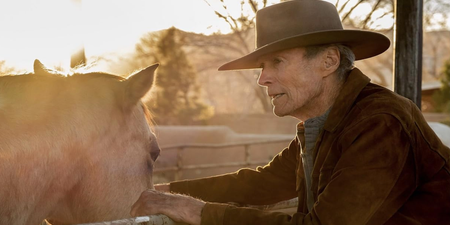By Eoghan McDermott of the Communications Clinic
Most people start their job search on the internet or in newspapers. Most people don’t acquire jobs through the internet or newspapers. Throughout my time helping people with their careers I’ve found that somewhere in their working life someone they know has ‘put them in contact with a fella to have a chat about a job’.
For example, how I got into this line of work was with a two-pronged attack. A family friend and a cousin, sorted me out with a meeting and I did the rest (modestly).
More examples. I met a guy recently who owes his job to his brother-in-law. Another fella I know was headhunted by a guy he had worked with five years previously. When he needed someone good, he went back and got him. A team I’m working with in one of the banks is made up of people the boss had worked with throughout his career.
You may say that’s all favouritism or nepotism or luck. Nope – it’s networking. It’s people looking around for a person they can rely on and finding them in their network of friends and acquaintances.
Networking is keeping in contact. Some people are great at it. You have to be.
The grapevine
You need to do lots of stuff that might sit in the tedious category. Remembering birthdays, going to reunions, attending events after work. This process can be vitally important to a job hunter because without contacts you will miss out on grapevine information about jobs that are coming on stream, and so you will be unable to use informed opportunism. Not only that, a scarcity of contacts means that you will not have tip-of-the-tongue reference value.
What you need is for a recruiter, gazing into space, suddenly to find your name on the tip of the tongue as a solution to a problem. A name doesn’t find itself on the tip of anybody’s tongue unless you’ve maintained contact with the owner of the tongue.
If you look at a GAA player for example. Being a player or club member provides a depth and breadth of contacts and opportunities that are available to few other sportspeople. Club level football and hurling allows for a real networking that is a mile away from the boozy dinners and business card swap-fests that have become synonymous with the term.
Remember Ireland is a village, the GAA is a community and people you know are the first place to look when you’re seeking an opportunity.
Good networking is not about meeting tons of people, each of them desperately hunting business. Good networking is building and using an informal web of people who you actually have a relationship with and who can vouch for you and give you a hand.
When looking at going into different roles or organisations remember Ireland is a village, the GAA is a community and people you know are the first place to look when you’re seeking an opportunity. People like team mates, coaches, sponsors, opponents. If you’re a hurler from Wexford and want to work in the hospitality area, you call Liam Griffin (the owner of the Ferrycarrig) and ask him for a steer.
People like friends, ex colleagues, relations. They love to be asked for advice and help. But the manner of asking is important. When a friend is approached in a panic, with the naked assumption that they might have a job to offer, the friend is likely to feel guilty and avoidant, because they simply can’t help. When a friend is approached in a coolly professional way with a good CV and asked to keep at the back of their mind the possibility of recommending the CV’s owner, should the opportunity arise, they are empowered to be genuinely helpful.
Six degrees
Like six degrees of separation, it has been suggested that any one of us in Ireland is only three contacts away from anyone we need to reach – if we need really think about it. It doesn’t matter whether you want to reach the Taoiseach, the President of the GAA or the editor of the Sunday Tribune: the chances are that, if you work hard enough, you establish that you know somebody who knows one of the three.
It does help, however, if you’ve maintained good relationships with your contacts.
But networking is not a one-way operation. Networking operates on the same principle of all effective relationships – give and take: you must invest your time and concern in other people in order to create a context where they are likely to invest their time and concern in you.
In some quarters this is known as the favour bank. You make it a practice, throughout life, to be helpful to people and to do favours for people without any immediate expectation of a quid pro quo. Keep yourself in credit in the favour bank. It will make you more successful. It might also, by forcing you to think about other people in a systematic and contributory way, make you a better person.
It’s important to keep relationships with people who at the minute you may want to strangle, for example the manager who tells you that you’re being let go. And most senior managers are likely to have contacts with other senior managers. They can do a real kind of outplacement that few actual outplacement companies can do.
They can sniff around, ring pals, talk to clients and get you work experience in their companies. They can get onto recruitment companies and indicate that they will be long term appreciative. They can ring a company like us and say guys, I have someone here I’d like looked after.
They will only do this if (a) they like you (b) they feel guilty.
Therefore shouting at them and telling them to stick the job where the sun don’t shine is not a good idea.
Eoghan McDermott is Head of the Careers Clinic in the Communications Clinic.
LISTEN: You Must Be Jokin’ with Aideen McQueen – Faith healers, Coolock craic and Gigging as Gaeilge





















































